
Message From The




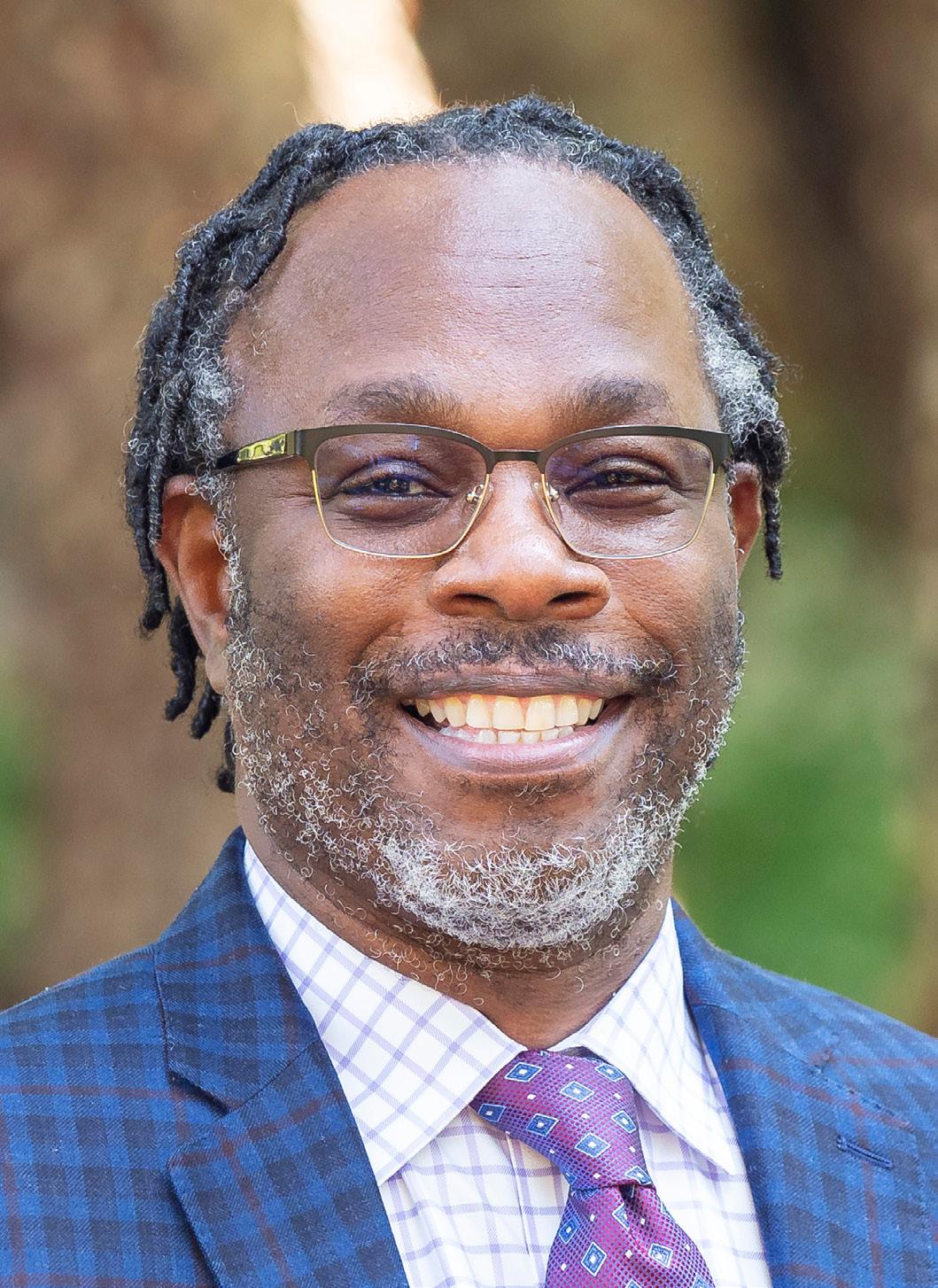
I am delighted to present this report from the University of Delaware Library, Museums and Press, which reflects on the 2021-2022 academic year. It focuses on the many activities we have engaged in to strengthen our commitment to equity, diversity, inclusion and accessibility – values that are ever more important in the wake of challenges resulting from the global COVID-19 pandemic and the many instances of injustice highlighted and exacerbated during those years.
In a climate where health, wellbeing and social justice issues were prioritized, we strengthened our resolve to live our values of equity and inclusion not only among the staff of the Library, Museums and Press, but in the ways in which we have engaged with our communities.
These have taken shape in both smaller-scale projects and robust undertakings. We have renamed our Nursing Mothers Room to the Lactation Room to be more inclusive, and we restarted our physical delivery services between the Marine Studies faculty and staff in Lewes and Morris Library in Newark to enhance accessibility. We have developed new anti-racist digitization criteria to help rectify the impacts of systemic and institutionalized racism in our collections, and we have conducted a salary equity review that resulted in salary increases for 30% of our staff.
We are widening the spectrum of our collections to ensure they reflect the histories of underrepresented populations, and we are strengthening our strategic partnerships and collaborations on campus and around the country to make our collections freely and openly available to scholars worldwide.
In the pages that follow, I hope you’ll learn more about the critical and intentional work we are doing in the equity, diversity, inclusion and accessibility space. We commissioned the banner you see on the next page, which hangs on the exterior of Morris Library, to celebrate our shared values and to serve as a visual reminder of our commitment to the community and each other.
I am grateful to the extraordinary colleagues with whom I work, who care deeply about the work we do and are passionate about serving our community. Together, we share with you All Access, our 2021-2022 Impact Report.
A. Dawes, vice provost for libraries and museums and May Morris University Librarian
In a climate where health, wellbeing and social justice issues were prioritized, we strengthened our resolve to live our values of equity and inclusion not only among the staff of the Library, Museums and Press, but in the ways in which we have engaged with our communities.
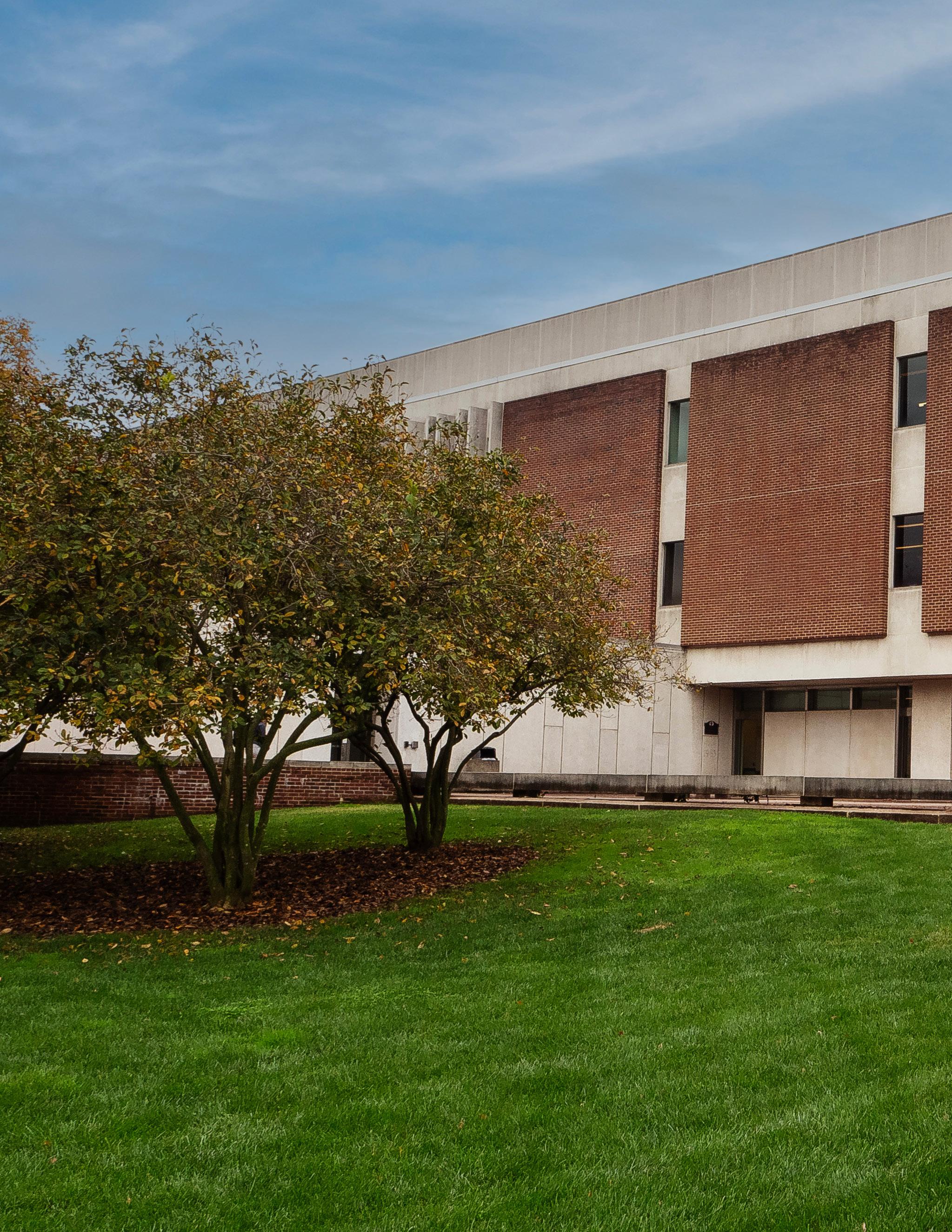
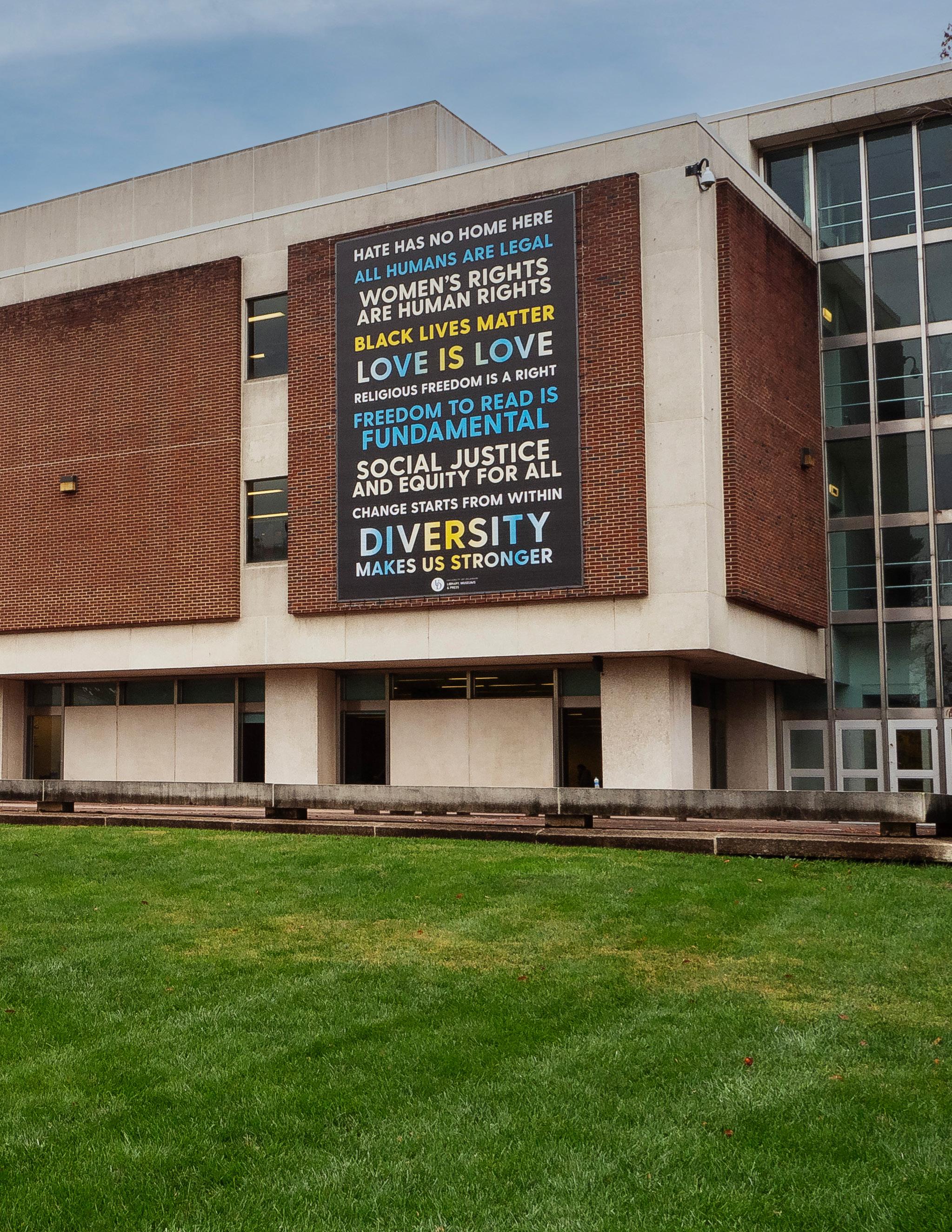
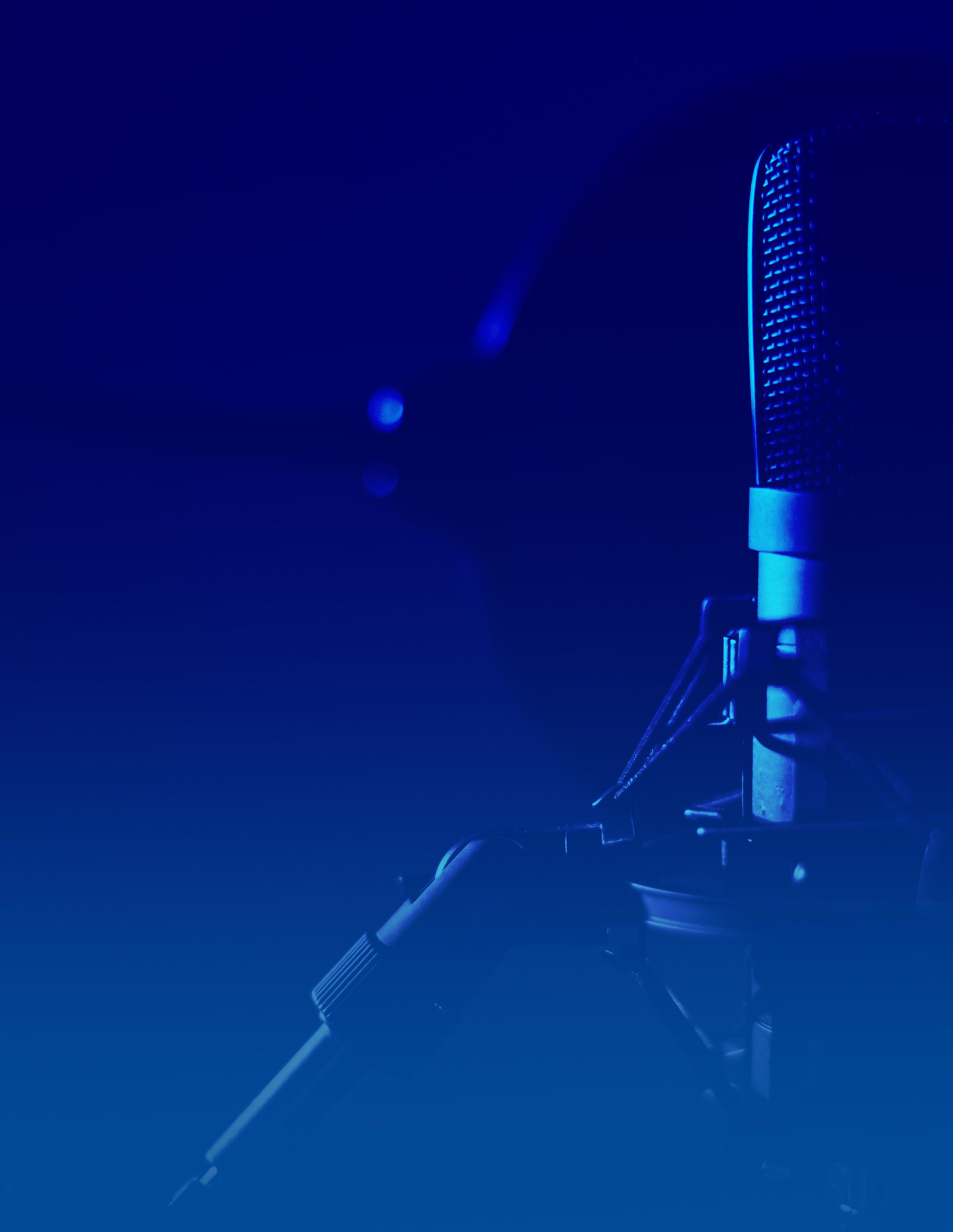
When Thelma Hinds was a freshman at the University of Delaware in the 1970s, she faced significant challenges and hostility as an African American student at a predominantly white institution. Once, for a class assignment, Hinds crafted a thoughtful narrative, proofed it and even brought it to the Writing Center for review. Her professor gave the essay a C. When Hinds asked her professor what she could have done to earn a higher grade, his response was unforgettable:
Hinds shared this anecdote as part of an oral history project designed to reflect the important and often unheard lived histories of African American UD students and Newark residents from the 1950s, when the University was desegregated, through the 1980s. Her experience with the professor is far from
the only instance of racial prejudice and discrimination that African American students, staff and community members faced at the University over the decades.
The oral history project was led by Professor Roger Horowitz of the Department of History
“You people can’t write this well, so you either plagiarized it or you got someone else to write that paper for you.”
and the 14 students in the course “Oral History: African Americans and the University of Delaware” in fall 2021. These illuminating oral histories are now publicly available through the Library, Museums and Press.

Professor Horowitz designed the course to be a hands-on learning opportunity for his students, who conducted and collected the 25 oral histories themselves.
“It’s a very different kind of class,” Professor Horowitz said. “The class allowed students to engage with the community around them in a very tangible, interpersonal kind of way. For some students, it was moving to have a course where you actually talk to history. You talk to a person who is the history, who was there, because that is a meaningful way of understanding the past.”
As a skilled oral historian, Professor Horowitz wanted to introduce students to the entire oral history process – from planning the interview to making it available to the public – and how it could be a useful tool in their future research and careers.
At each step in the process, the students received expert guidance from their professor as well as staff in the Library, Museums and Press.
Professor Horowitz coached students on how to conduct exploratory interviews after he recruited interview participants with Denise Hayman, a former Newark resident and a member of the Mu Pi chapter of Delta Sigma Theta, UD's first African American sorority. Professor Horowitz then interviewed the late James Newton, a former UD faculty member, during a class session to walk students through the process of conducting the oral history itself.
Students created lists of interview topics and themes by using materials from Special Collections and other historical documents that spoke to students and community members
of the time. They met with librarian Amanda McCollom several times to learn how to use recording equipment from the Student Multimedia Design Center and how to clean and trim their recordings with audio editing software. Students also selected and transcribed interview clips for inclusion in an online Library, Museums and Press exhibition, Oral History Interviews: African Americans and the University of Delaware.
Throughout all of this work, students learned the ins-and-outs of the oral history process. They gained a deep understanding of how an oral history serves as a historical resource and primary source, and learned how to conduct structured conversations to capture those stories. They also honed softer skills around effective communication, research and project planning.
Following the fall 2021 semester, Jay Reed, one of the students in the course, took an independent study to continue the work of making these oral histories accessible to the public. During this time, Reed worked closely with Professor Horowitz and staff from the Library, Museums and Press, including librarian John Caldwell in Special Collections.
“Oral history doesn’t end when the interview is completed,” said Professor Horowitz. “The oral history ends when the interview is available for research. If you want oral histories to have a link with the community, you have an obligation to make the interviews available for the community to see, and you do that through the library.”
Part of Reed’s time was spent on curatorial work, where she categorized clips and crafted standard thematic descriptions for the online exhibition. The rest of the time, she worked on indexing the full oral histories to make it easier for researchers to navigate the wealth of content. Reed also co-authored the finding aid for the collection, which synthesizes the scope of the work and the contents available so that researchers and members of the public better understand the resources they are engaging with.
With mentoring from Caldwell, Reed’s efforts were critical to ensuring the oral histories are discoverable, navigable and accessible to all those who are interested in hearing them.
Now, as part of the collections of the Library, Museums and Press, the oral histories of the African American community who lived in Newark and attended the University between the 1950s and 1980s have become a record of history everyone can access.
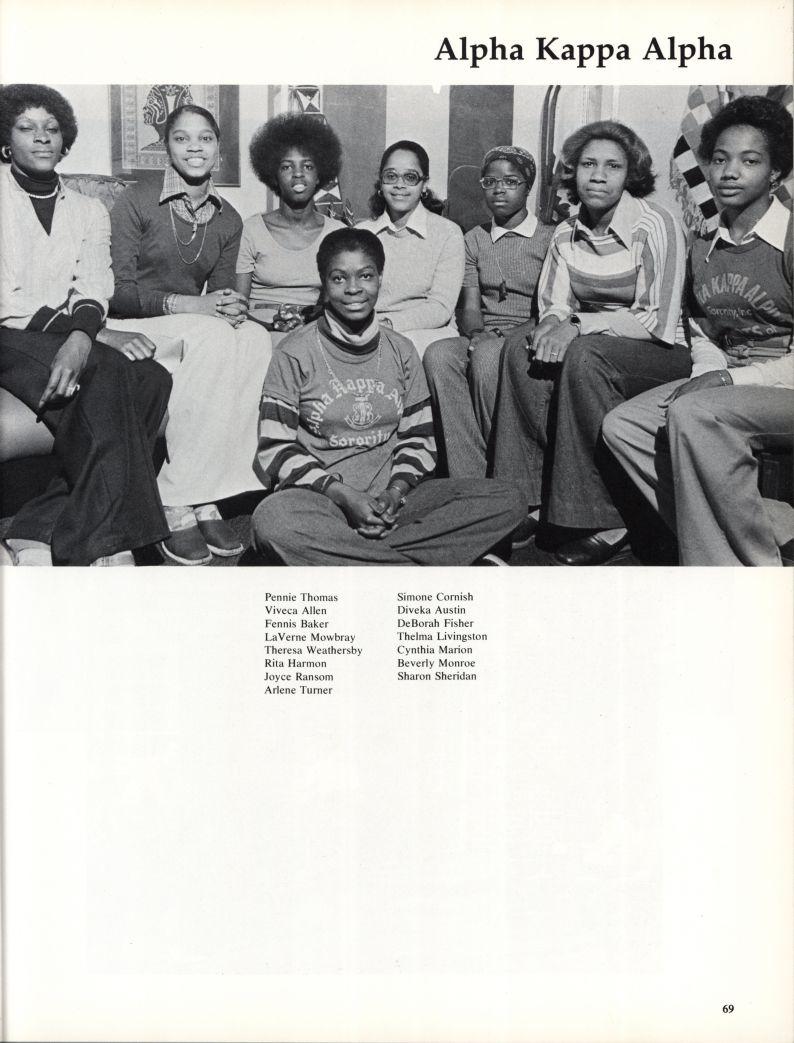
Framed by Delaware’s troubled experience with de jure and de facto racial discrimination, the oral histories speak to overarching themes of the African American community in Newark, the racial climate in Newark and at the University, and African American Greek life and student life on campus.
For the Newark community, this work is critical. “There’s a lot of energy right now to protect, reclaim and document the story of the New London Road/Cleveland Avenue community in Newark,” explained Caldwell. “Being able to
capture these stories in the words of the lived experience of the members of that community is so valuable.”
For the University, this work is vital to acknowledging its past. “The oral histories also help to document the University’s history in a way that is not always reflected in traditional archival resources,” continued Caldwell. “This more informal history of student life and the student experience and the experience of employees and the University strengthens the value of our resources and our collections.”
The oral history project created dynamic learning experiences that will continue to make an impact. Students in the class will carry the lessons and importance of oral histories as a primary source into their future careers, ready to help other untold histories come to light, and community members and researchers worldwide will benefit from exploring, discovering and learning from the lived histories shared in the resulting collection.
The Library, Museums and Press staff provide guidance and expertise to the UD community in their personal and professional research interests. The stories that follow highlight the variety of ways that we support students, faculty and researchers on their paths to success.
Systematic reviews synthesize all available primary research studies to assess existing knowledge and identify areas for further study. While they are considered one of the most reliable sources of evidence, they are an intensive process and one many faculty and graduate students are unfamiliar with. The health sciences librarian trains students and faculty on how to search for high-quality research, establishing search strategies and methodologies, and sharing best practices for systematic reviews.
Staff in the Digital Scholarship and Publishing unit helped UD researchers to clean and restructure a large, complex entomology dataset compiled over the course of 10 years. Initially, the 30,000line spreadsheet was difficult for anyone outside the project to navigate without instruction, but our staff mentored the researchers on how to clean and format the information so that others could use it. The reformatted dataset will be used to create an interactive website, and it will be available for download in UDSpace, the institutional repository that makes research findings freely accessible to everyone.
Multimedia assignments are an alternative form of course assessment that can engage and inspire students, but designing assignments around unfamiliar technology can be daunting for teachers. The multimedia literacy librarian led a half-day workshop to provide faculty with everything they need to develop and implement a podcast assignment connected to student learning outcomes, and to become familiar with the tools needed to complete it. As a result, more UD faculty will be assigning multimedia projects and enabling students to demonstrate their research, writing and oral communication skills through a new medium.
Students in Horn Entrepreneurship have access to innovative educational opportunities as they pursue new ideas for a better world. Each year, the business librarian introduces Horn Entrepreneurship students to research tools that can help in the success and sustainability of their new business ideas. Students also schedule consultations with the librarian who works with them on data retrieval and analysis to ensure the strongest business idea as they prepare prototypes and bring ideas to market.
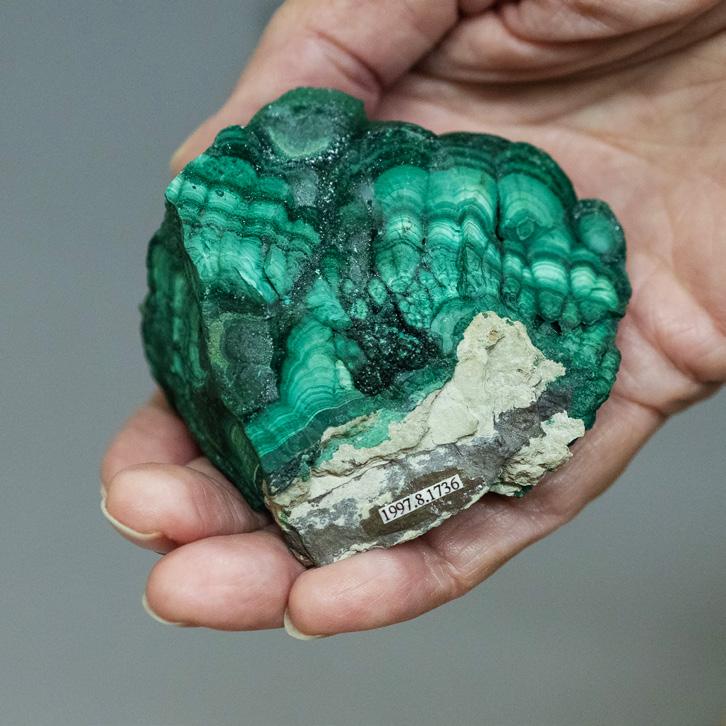
Art conservation and chemistry students visited the Mineralogical Museum as part of their classes during the fall 2021 and spring 2022 semesters for unique, hands-on learning opportunities. Through close observation of minerals within the class, the 31 students examined pigment materials, explored what controls color in minerals and artworks, and examined real-life examples of the deterioration process to enhance their larger research projects.
Expensive course materials have a negative impact on student learning. Through the Open and Affordable Teaching Materials Initiative, the Library, Museums and Press helps faculty integrate free and low-cost materials into their courses to ensure all students have easy access to the materials they need to succeed. We do this by awarding grants and working one-on-one with faculty to understand their specific course needs.
During the 2021-2022 academic year, librarians helped faculty in six courses adopt lowcost resources, benefiting 181 students. As a result of this work, those students have saved an average of $59-$129 each, resulting in a total savings that is upwards of $23,000.
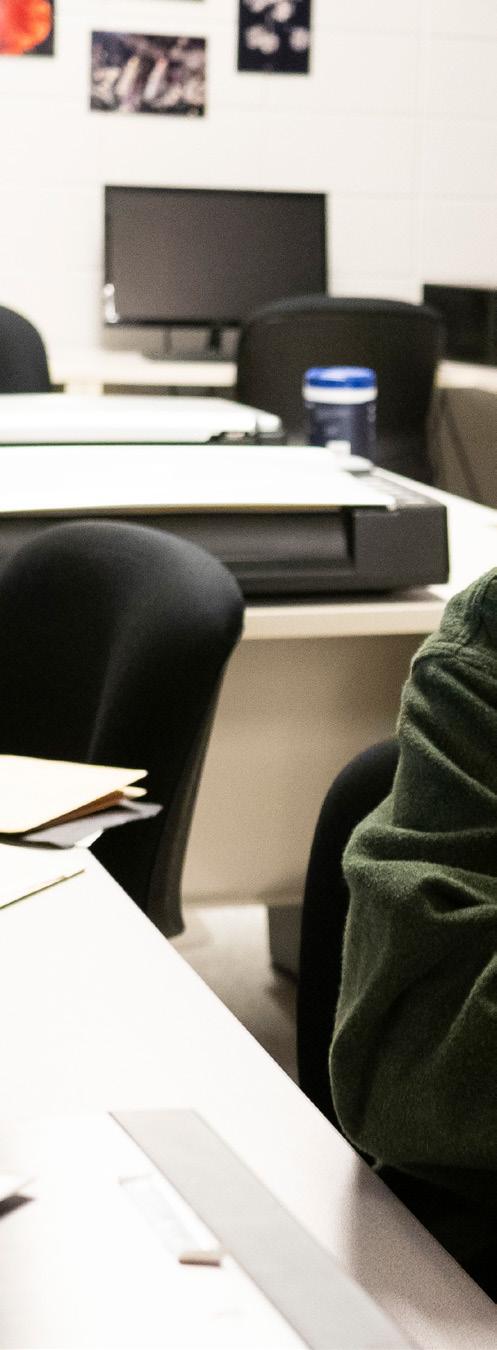
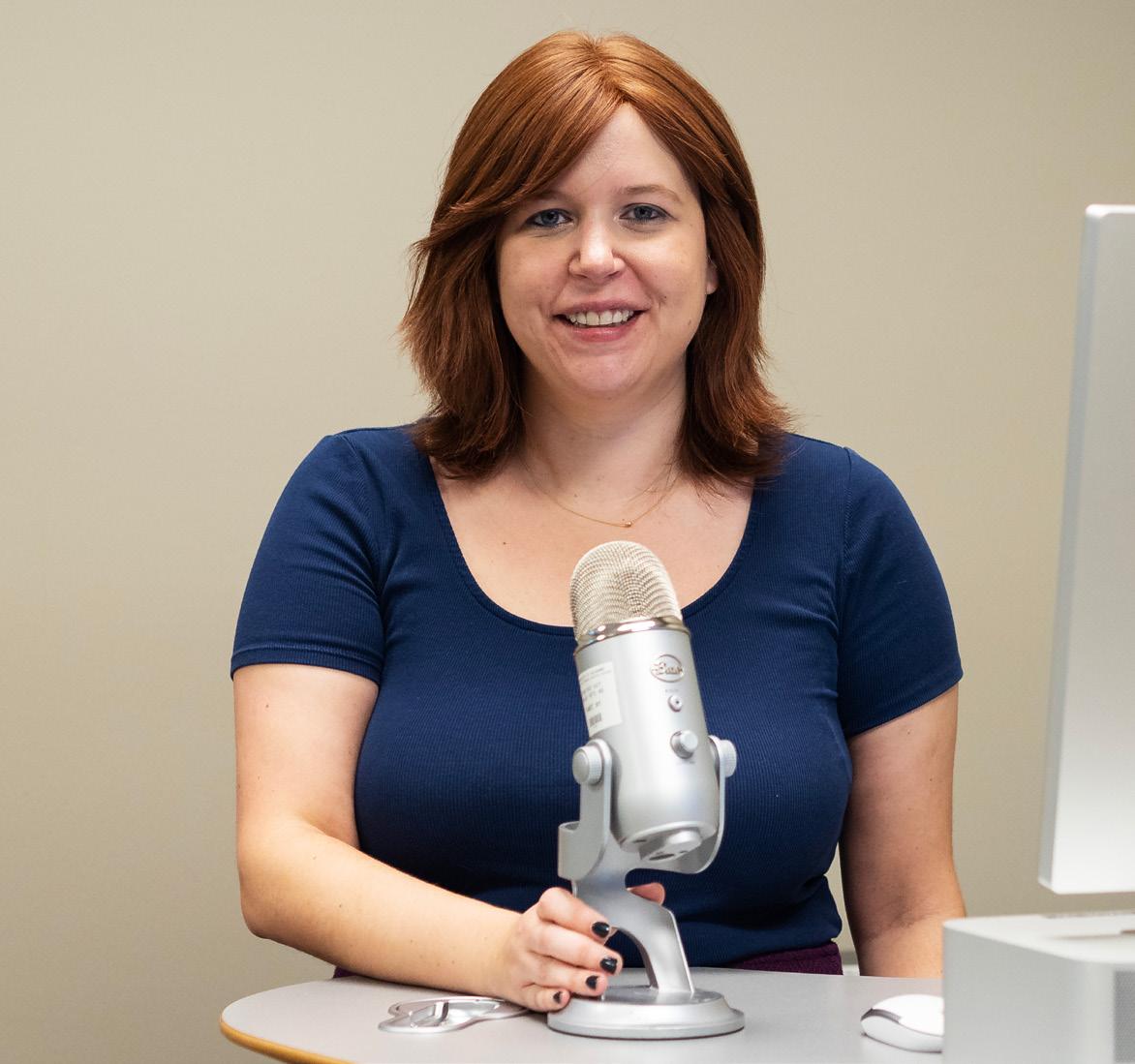
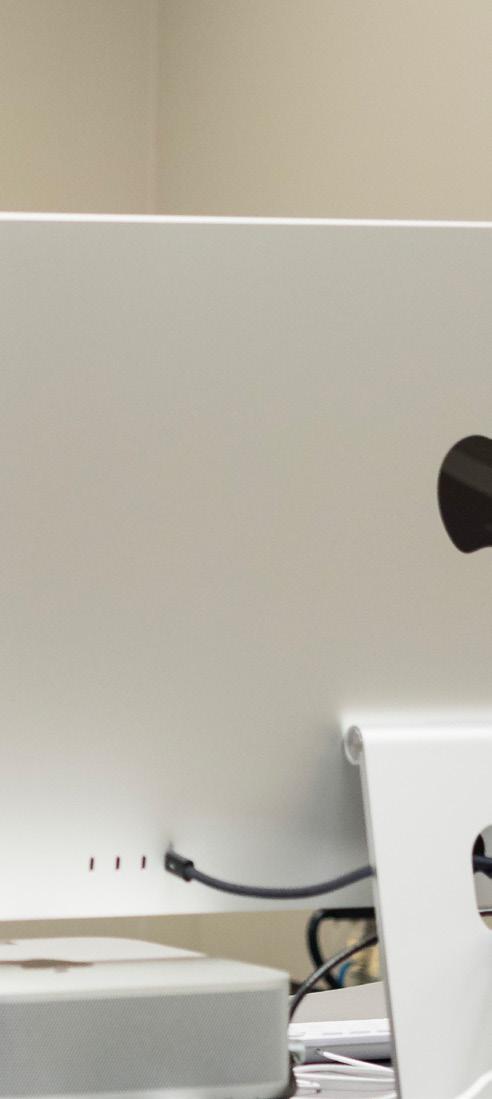
When Professor Barry Joyce applied for a Library of Congress grant to create a two-year program that allows Delaware teachers to learn about and build curriculum on in-state minority communities, he turned to the Library, Museums and Press for support. Staff and librarians compiled lists of books and primary sources from the University’s collections and the Library of Congress that teachers in the program could incorporate into their lesson plans for more dynamic teaching opportunities. The grant was successfully funded.
UDLib/SEARCH, a state-funded collaboration between the Delaware Department of Education and the Library, Museums and Press, provides a virtual library of online resources and full-text databases for all Delaware K-12 public schools. Librarians work closely with student teachers to teach them how UDLib/SEARCH resources are valuable tools that can be used in the classroom to support state standards and to enhance teaching and learning in their subject specialties.
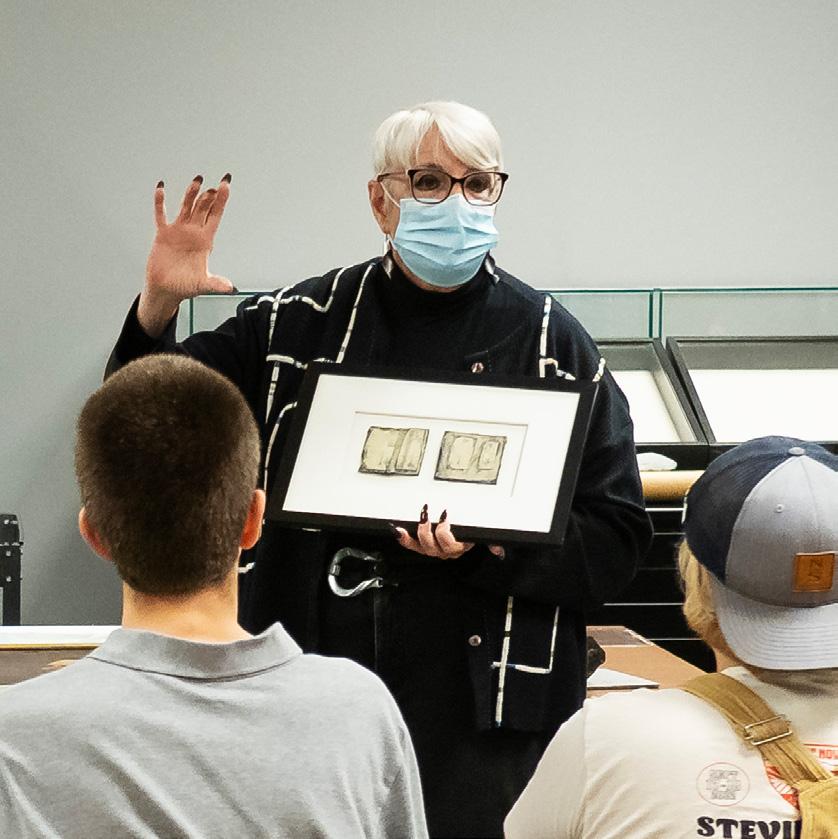
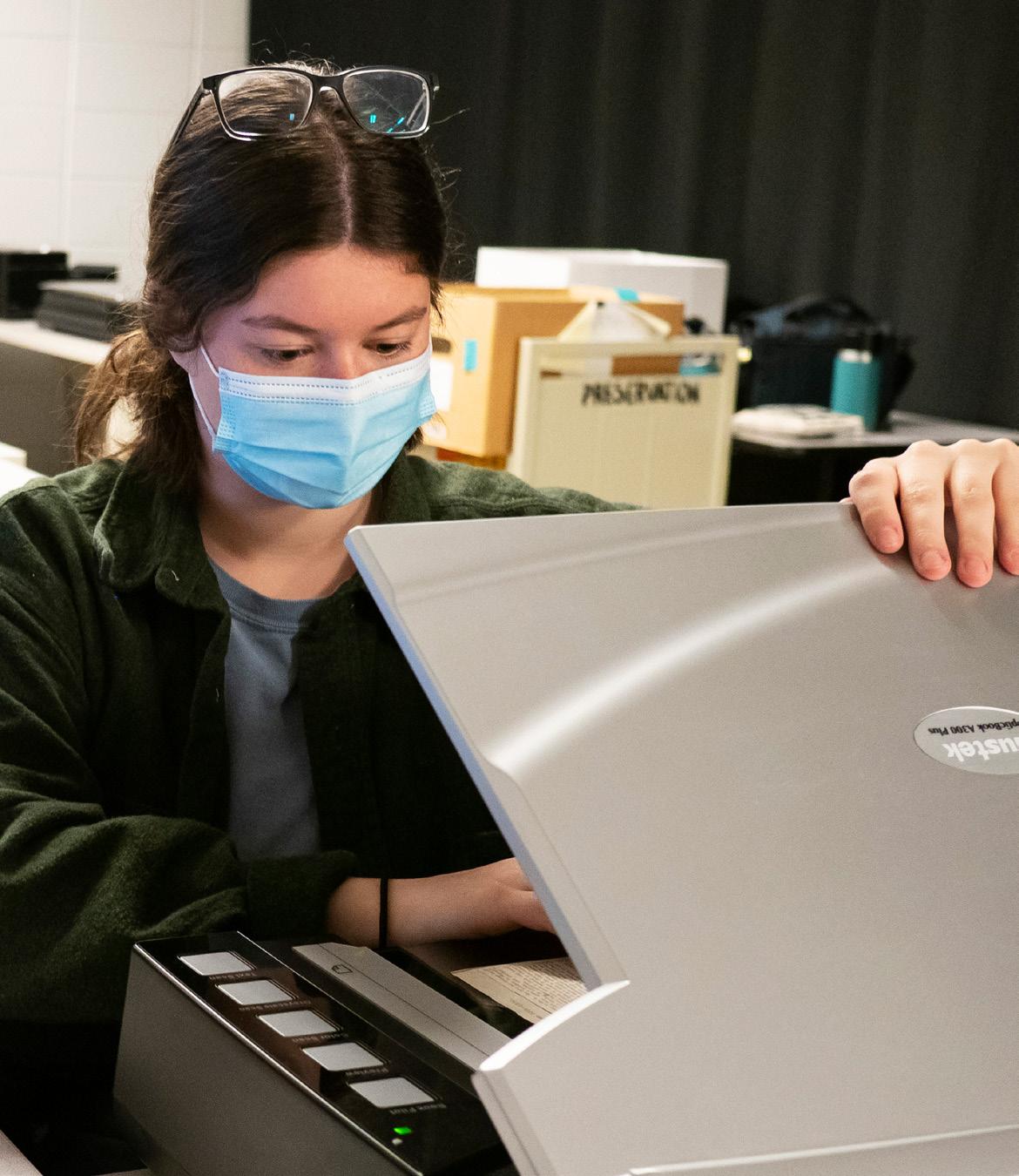
The 2022 Collections AID project, a service project for Museum Studies graduate students to help preserve and organize the collections of community organizations, was centered on making archives move accessible through digitization. Staff in the Digital Collections and Preservation Department worked closely with Museum Studies staff and students to recommend scanning procedures and equipment and to train them on how to install and use necessary software. As a result of this guidance, students successfully scanned thousands of policy proposals and program records for the Metropolitan Wilmington Urban League.
To ensure students know the roles and career paths available in museums, staff in Special Collections and Museums worked with the Department of Art History to establish “Museum Careers and ARTH Internship Preparation,” a jointly run seminar that prepares students for future opportunities working with collections and in museums. Throughout the course, offered for the first time in spring 2022, 17 students gained professional insights into topics such as curatorial work, collections management and art handling from our staff and curators.
Newspapers, photographs, postcards, maps and other primary sources offer firsthand testimonies of the past, often humanizing what we’ve read about in textbooks and introducing that which has been left out.
With funding provided by a Unidel Foundation award, the Library, Museums and Press has acquired digitized primary source materials that reflect the experiences of African Americans from the 18th through 21st centuries. Among these new resources are plantation records; Black-owned newspapers; and archival records of the NAACP.
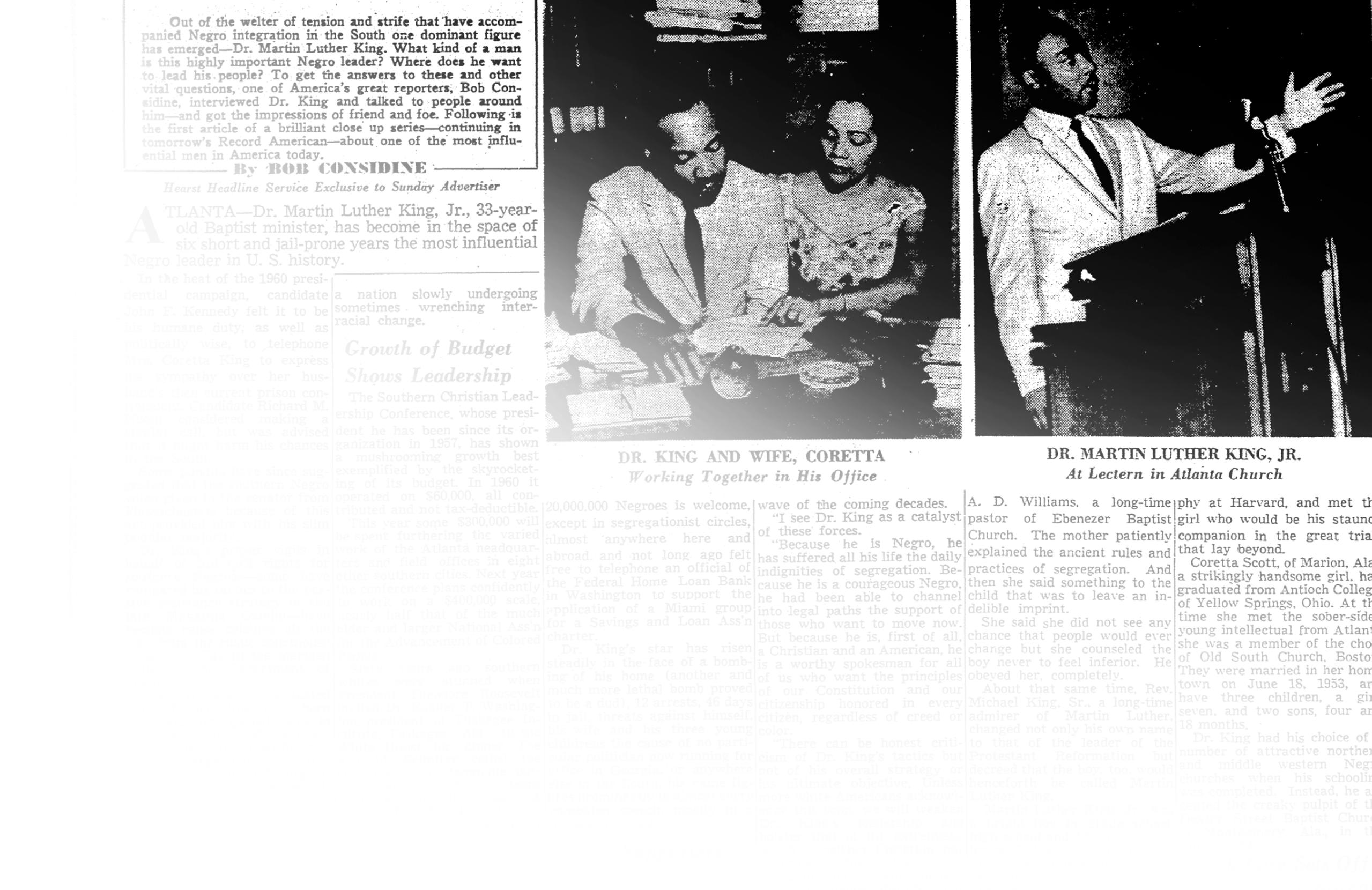
With these materials, students and researchers can explore how the past informs the present. Faculty can also use the primary sources to transform their curricula with unique, hands-on projects using these easily and instantaneously accessible materials.
Newspaper clipping from Boston Record American (published as The Boston Sunday Advertiser) on Sept. 9, 1962, accessible through the Black Life in America database.
During the 2022 spring semester, Professor Kathryn Benjamin Golden of the Department of Africana Studies incorporated a selection of these primary sources into a critical reading exercise in her course on American slavery. Access to these materials, Professor Golden explained, “makes rare and previously unstudied documents instantaneously available to students and scholars in our community, and provides for the narration and interpretation of counter-narratives, which are crucial in the telling of fuller, richer narratives about our past and about ourselves.”
Through these newly acquired primary source materials, the Library, Museums and Press bolsters its support of the University’s traditional academic disciplines, interdisciplinary and global programs, and campus-wide initiatives in our shared efforts to foster global citizens and to advance and enhance our world.
The funding from the Unidel Foundation award also enabled the acquisition of 100 e-videos that highlight the role of women in African American history, the struggles for Black freedom and activism more broadly. This streaming media content, available to Blue Hens through the Library’s online catalog, further enhances research and supports faculty’s teaching goals.
In support of the UD Faculty Senate Open Access Resolution, our Digital Scholarship and Publishing unit helped faculty, postdoctoral students and graduate students make their research openly available via UD’s institutional repository, UDSpace. Open access scholarship is freely available to everyone around the world, expanding the reach and impact of a scholar’s research.
~300,000 PAGES FROM 111 HISTORIC DELAWARE NEWSPAPERS WERE DIGITIZED
~550 UNIQUE AUDIO RECORDINGS TOTALING 25+ HOURS WERE DIGITIZED AND TRANSCRIBED ~10,000 ITEMS IN THE MARK SAMUELS LASNER COLLECTION WERE CATALOGED
After completing its third and final grant cycle, the Delaware Digital Newspaper Project (DDNP) has made historic Delaware newspapers from all three counties full-text searchable and freely accessible on Chronicling America, a database where researchers can access historic newspapers from all 50 states.
The Library, Museums and Press created DDNP in partnership with the National Endowment for Humanities and the Library of Congress as part of the National Digital Newspaper Program.
As part of an 18-month grant-funded project, Special Collections made local political recordings accessible to researchers worldwide. Offering a window into local, national and international politics from 1949 to 1986, the recordings – including senator speeches and political radio ads – were reformatted for easy listening and transcribed for increased accessibility.
This Recordings at Risk grant was awarded by the Council on Library and Information Resources and funded by The Andrew W. Mellon Foundation.
Donated in 2016 by senior research fellow Mark Samuels Lasner, the eponymous collection focuses on British literature and art of the period 1850 to 1900, with an emphasis on the Pre-Raphaelites and the writers and illustrators of the 1890s. With cataloging completed in May 2022, the majority of the printed works, manuscripts, photographs, artworks and more that make up the collection are now easily discoverable in our online catalog, enabling more researchers worldwide to find and
The Library, Museums and Press partners with thousands of libraries around the world to provide expanded access to materials via the Interlibrary Loan (ILL) service. Through ILL, the broader research community can borrow materials from our collections, and the UD community has access to materials in collections around the world through both physical and electronic delivery.
The gallery spaces on campus aren’t the only places where objects from the University’s collections are on view. Since July 2021, the Library, Museums and Press has loaned materials to nine institutions for inclusion in exhibitions. With exhibitions on view from Massachusetts to Texas, a broader audience has been able to engage firsthand with these cultural artifacts.
Imagine searching thousands of collections across the country with a simple click of a button. That’s the idea behind the Digital Public Library of America (DPLA), a database for researchers to easily search more than 46 million resources – and counting –from the digital collections of libraries, archives, museums and other cultural heritage institutions in one fell swoop.
To sustain such an expansive platform, DPLA uses service hubs that make it easy to share unique local resources with the world at large. The Library, Museums and Press is a founding partner in the NJ/DE Collective, the DPLA service hub launched in July 2021 that enables materials from organizations in both New Jersey and Delaware to be discoverable by researchers worldwide.
Librarian Michael Stewart works closely with Lynn Hoffman, their project counterpart at the Somerset County Library System of New Jersey, to gather and format metadata from each participating institution that can be shared with DPLA. There are more than 44 participating organizations in the NJ/DE Collective, ranging from large academic institutions to smaller public libraries, which combined have contributed nearly 300,000 items to DPLA to date.
“Our work as a hub has been exciting for many reasons,” Stewart explained. “On the one hand, we're able to connect researchers to a vast collection of freely available resources, and on the other hand, we're able to showcase the holdings of so many fantastic local and regional institutions for researchers across the country and around the world.”
All the research materials discoverable in DPLA – think photographs, artwork, oral histories, maps and more – are freely accessible and immediately available in digital format. As DPLA aims to showcase the breadth and depth of American history, the Library, Museums and Press plays an active role in ensuring Delaware is part of that story.
Right: Resources from the Library, Museums and Press’ collections now accessible through the Digital Public Library of America.

Over the years, students have had the chance to curate exhibitions in gallery spaces across campus with guidance from our expert curators and staff.
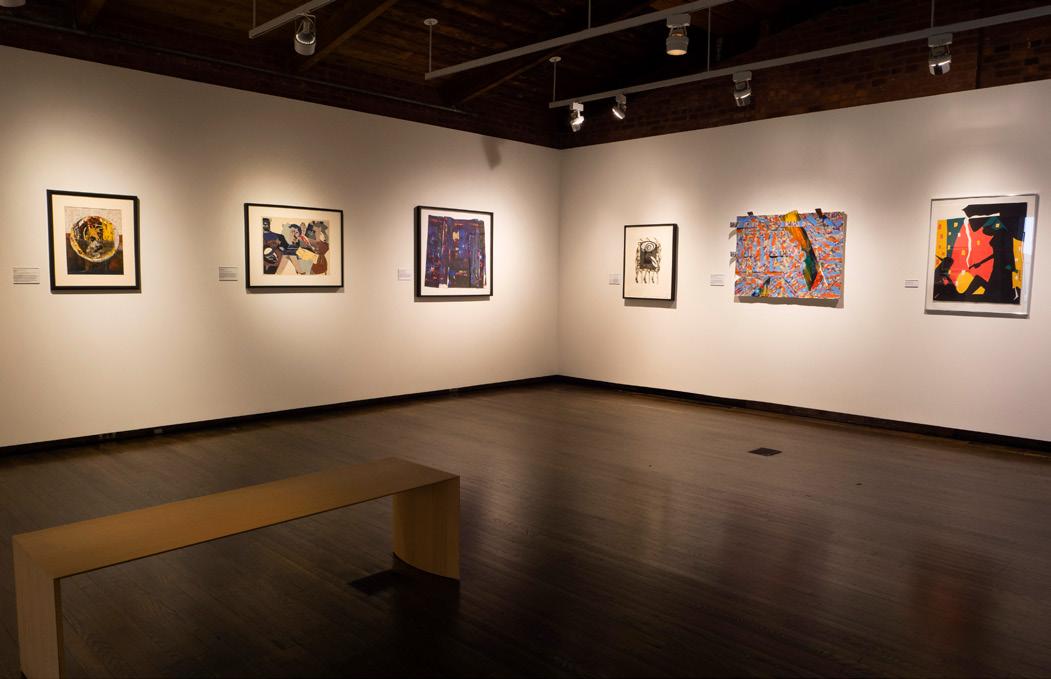
Art history students curated exhibitions for spring 2022 that highlighted artists who have often been underrepresented in museum spaces while creating a cultural experience for the UD community. Through these hands-on opportunities, students gained skills and insights that will be invaluable in their careers.
This exhibition was guest curated by Danielle Canter, a former Library, Museums and Press graduate research assistant. From researching materials to writing labels to planning the installation, Canter was mentored by Museums staff and took a lead role in planning the exhibition, which explored the practice and visual strategies of collage within the University’s collection of African American art. She also gained event planning experience, co-hosting the Q&A during a virtual talk with collage artist Phoebe Beasley. Staff shared guidance on content inclusion, program planning, installation best practices and more, enabling Canter to curate an insightful and innovative exhibition.
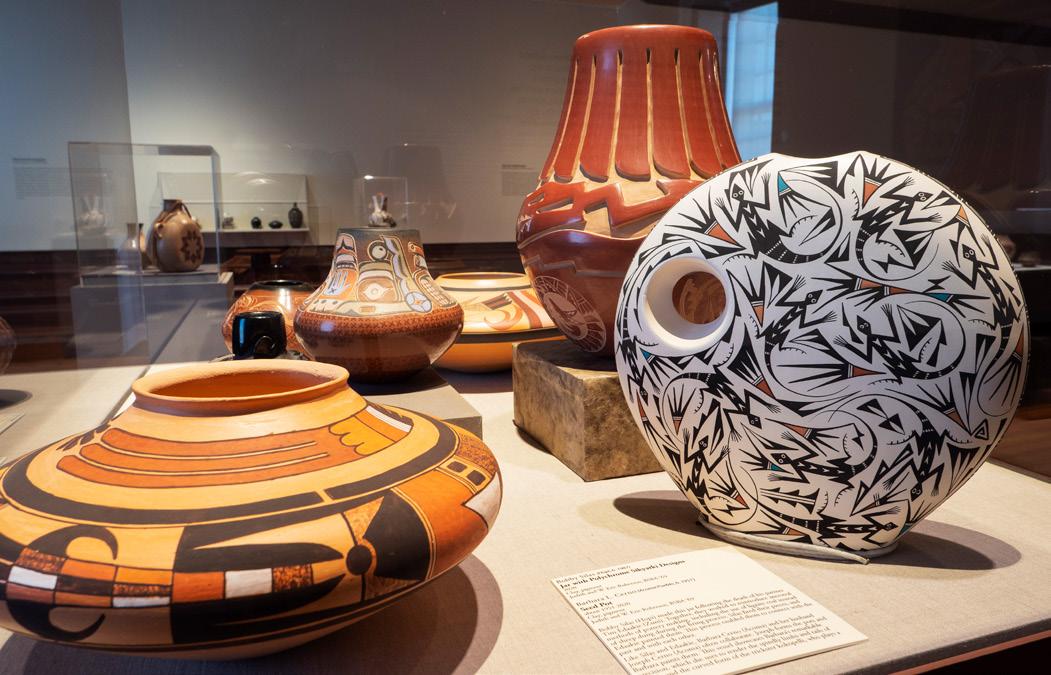
Highlighting contemporary Native American art from the University’s collection as well as the private collection of Judith and W. Eric Roberson, this thoughtful exhibition was co-curated by Professor Jessica Horton, former graduate research assistant Victoria Sunnergren, and 10 graduate students from Horton’s fall 2021 seminar, “Curating Contemporary Native Art.” Sunnergren led the preliminary research and organizational efforts, while Horton’s class worked closely with Library, Museums and Press staff to plan the various elements needed to bring this exhibition to life.
The University occupies lands vital to the web of life for Lenape and Nanticoke, who share their ancestry, history and future in this region. To honor, respect and recognize these groups, the Library, Museums and Press installed the University’s Living Land Acknowledgement on walls within Old College Gallery, Mechanical Hall Gallery and the Mineralogical Museum, and staff read the acknowledgement at the start of our virtual and in-person lectures and special events.
Presidential historian Doris Kearns Goodwin looked on in delight as she browsed materials from the Lincoln Collection during a visit to the University in fall 2021. The collection consists of more than 2,000 books, pamphlets, artifacts, historic documents and other items in Special Collections that are related to the life and career of Abraham Lincoln.
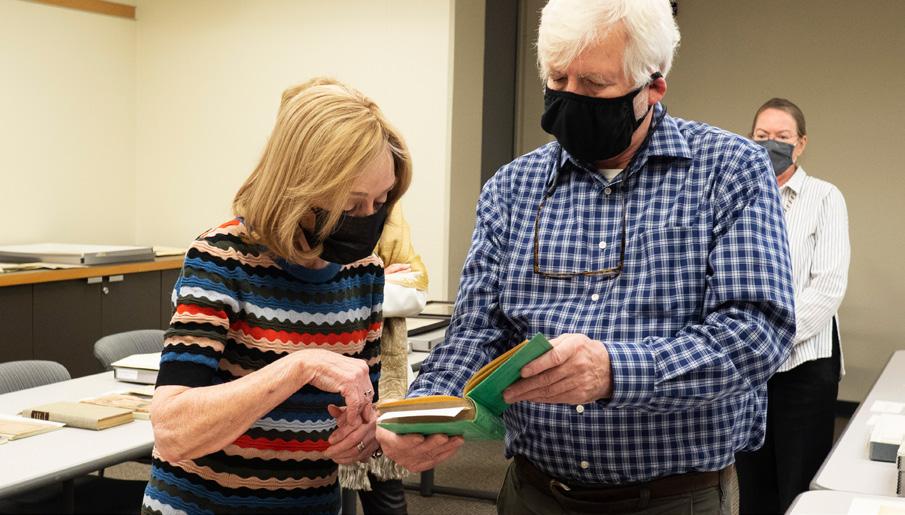
Goodwin is well versed in the life and legacy of Abraham Lincoln –having written books and produced
a miniseries about the 16th president – yet still made new discoveries and connections as she explored the University’s collection of Lincolniana.
The extensive Lincoln Collection, gifted to the University by the Lincoln Club of Delaware in 1972, is available to all for learning and discovery, whether they’re a renowned presidential historian or a first-year Blue Hen. Special Collections ensures these materials are preserved, displayed and made available for research.
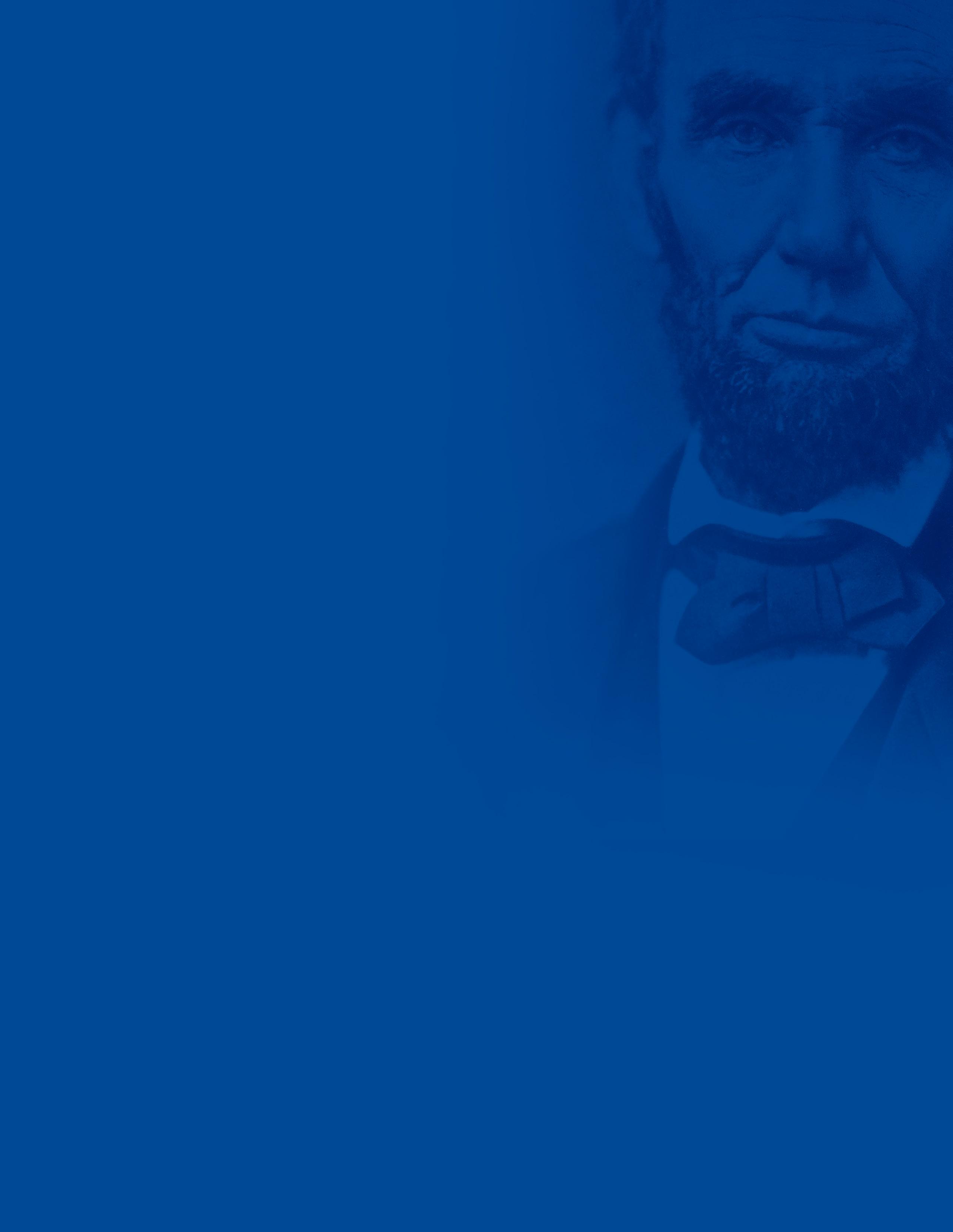
“The Lincoln Collection is one of the great treasures in Special Collections,” said Tim Murray, librarian and head of Special Collections who served as the University of Delaware's liaison to the Lincoln Club’s board of directors for many years. “The books, documents and other primary source material in the collection document not only Abraham Lincoln's life and presidency, but the history, politics and culture of the entire Civil War era.”
Researchers can view copies of the Emancipation Proclamation and 13th Amendment signed by Lincoln. They can explore books from Lincoln’s personal library, photographs and lithographic portraits, and a host of material related to his death, including a reward poster issued after his assassination. With items from the collection on view in rotating exhibitions in the Lincoln Exhibition Case in Morris Library, all visitors can learn more about topics like Lincoln’s election and presidency, the American Civil war, and slavery and emancipation.
The collection sheds light on the leadership skills and character of a man widely considered one of the greatest historical figures and provides insights into an especially divisive time in American history. With access to these unique materials, researchers and learners – the leaders of tomorrow – can gain insights from the past to shape a better future today.
Bottom:

In fall 2021, artwork from 14 faculty members in the Department of Art and Design was on view in the Here/Now: Art and Design Faculty Exhibition in Mechanical Hall Gallery. Staff in Museums worked closely with guest curator Robin K. Williams from The Contemporary Austin as well as the department faculty to ensure the exhibition reflected the faculty members’ artistic intent and supported teaching initiatives and curriculum goals. While showcasing the talent of University faculty, the exhibition also inspired and engaged the broader community through the thought-provoking art.
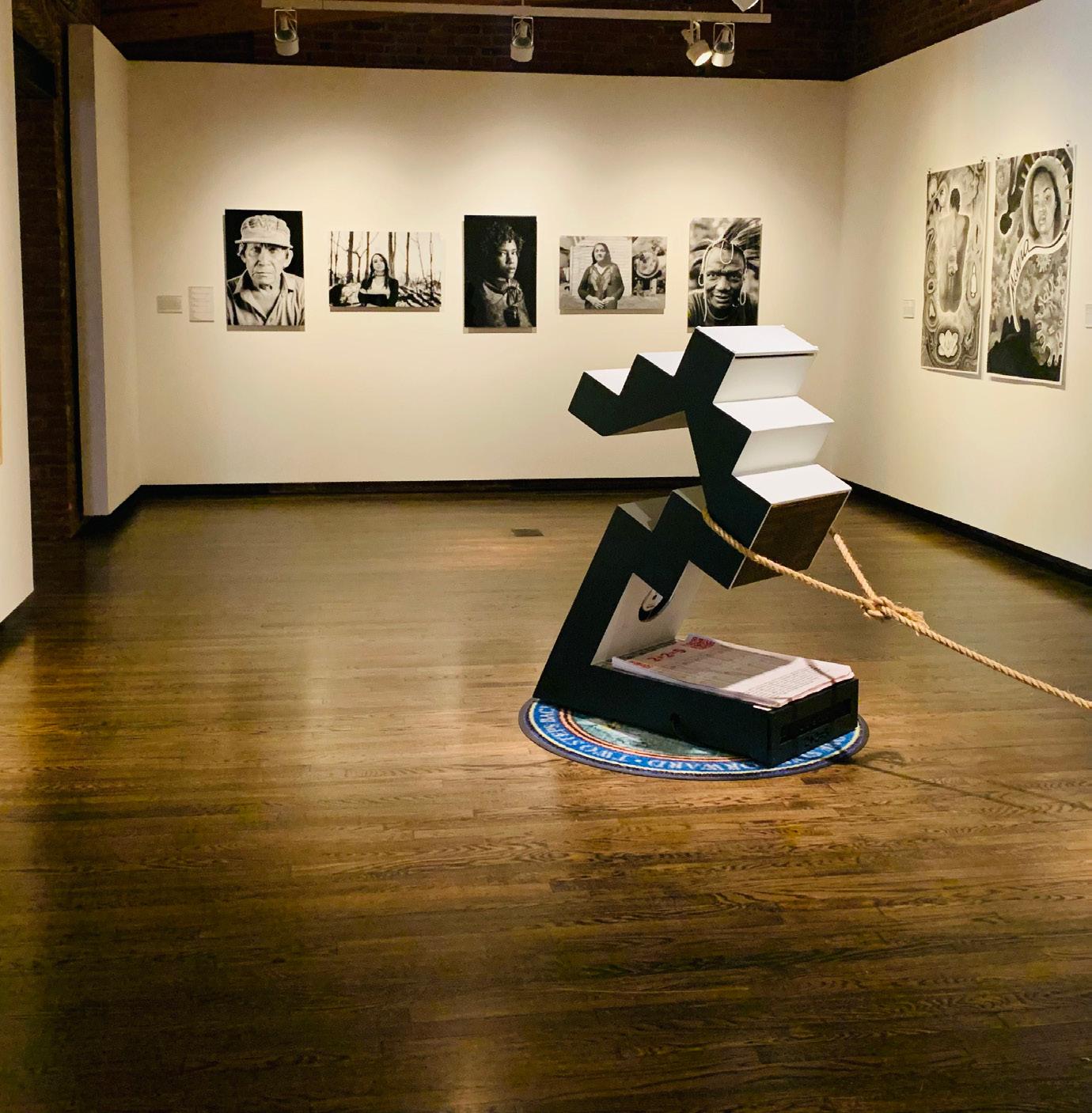
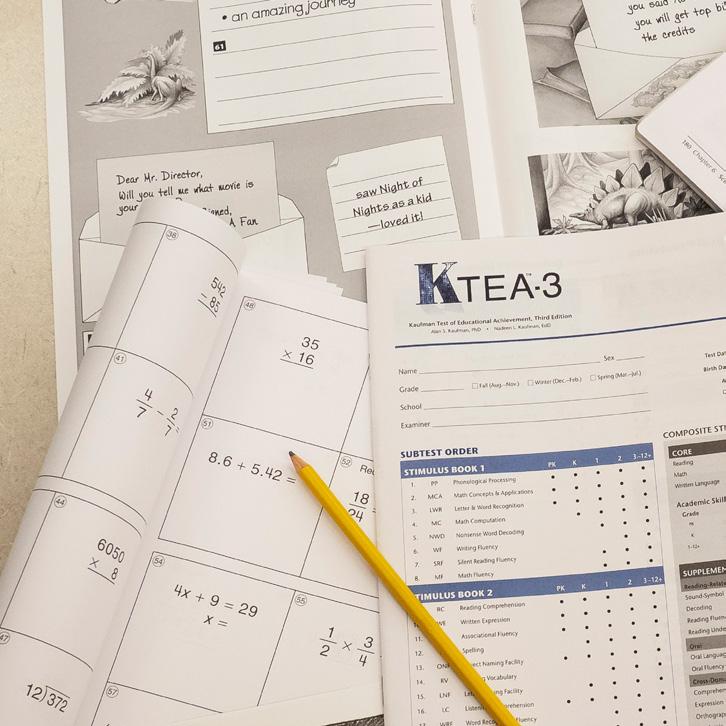
Each year, Faculty Commons partners host the Summer Institute on Teaching, an intensive multi-day event that brings together educators across the University to learn from one another. The Library, Museums and Press was a key partner in planning this year’s hybrid event. Our staff also led five sessions on practices, resources and tools that support teaching. From open educational resources to data analysis, and object-based learning to source evaluation, the sessions were designed to support and encourage innovative teaching.
High school students from underrepresented backgrounds who are interested in becoming teachers can explore the field of education at the University through the College of Education and Human Development’s Teachers of Tomorrow Program. As part of the program, staff at the Education Resource Center introduced students to curriculum resources and technology that support and enhance teaching while offering students hands-on opportunities to use the materials in their own mock lessons. These engaging, interactive experiences helped students foster excitement for teaching and prepare for future success on their path to becoming an educator.
Left: Librarian Theresa Hessey helping a School Hill community member digitize materials.
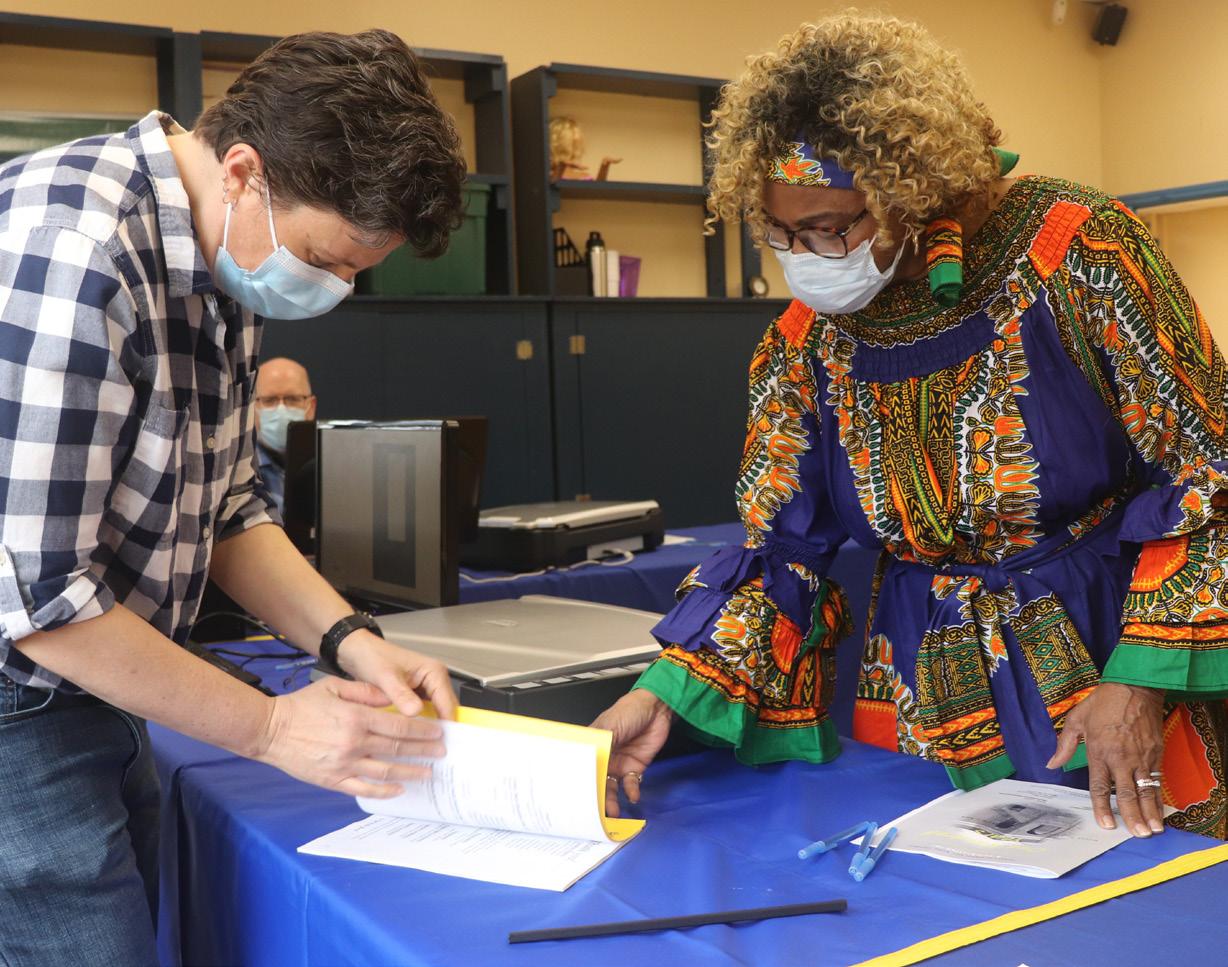
Right: A Winterthur intern conducting XRF scanning on materials in Special Collections.
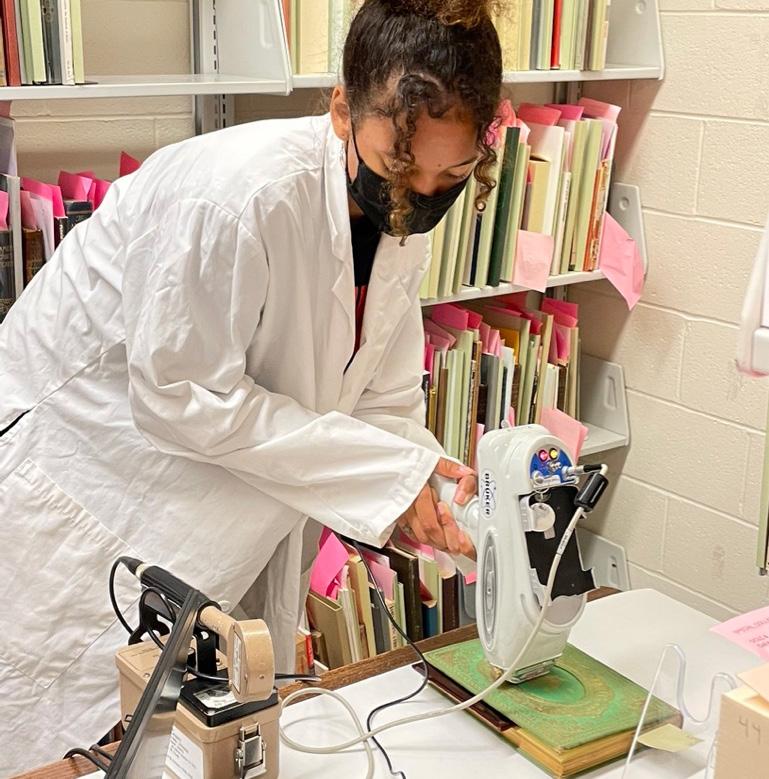
In support of Delaware House Bill 198, which stipulates K-12 schools will provide instruction on Black history, librarians introduced Caesar Rodney High School educators to materials they could use to teach the curriculum. When incorporated into lesson plans and assignments, the materials – historical Delawarerelated primary sources from Special Collections as well as UDLib/SEARCH databases relating to Black history and current events in the African American community – allow students to engage with the history more deeply.
The Library, Museums and Press has worked closely with the Friends of School Hill Association (FOSHA) to preserve the history and legacy of this important African American community in Newark since 2017. In fall 2021, staff led a half-day event that brought together community members to discuss the history of School Hill and to teach them how to preserve historical documents. In spring 2022, staff helped community members digitize personal items during a FOSHA anniversary event. The Library, Museums and Press hosts the digitized materials in our collections to ensure the rich history of the School Hill community is represented in the historical record and available for others to discover.
Led by Winterthur Museum, Garden & Library staff Melissa Tedone and Rosie Grayburn, the Poison Book Project is an investigation of potentially toxic pigments used to color Victorianera bookcloth, which began with an analysis of books in Winterthur’s collections. In 2022, the Library, Museums and Press partnered with Winterthur staff to conduct an analysis of materials in the University’s Special Collections that may have been bound with potentially dangerous materials. With the expanded data from our collections, the project now has a more robust inventory of information to share with other institutions and to use in establishing safe handling protocols and training procedures.
In its first full year under a new partnership with Rutgers University Press, the University of Delaware Press had a strong year, publishing 14 books in fields such as literary studies, art history and early modern studies. The Press continued to publish innovative interdisciplinary and transnational scholarship, particularly through series such as The Early Modern Exchange and Performing Celebrity.
This year also saw the launch of a new series, Material Culture Perspectives, which aims to highlight the University of Delaware’s role in shaping the field of material culture studies. The series premiered with the publication of Elusive Archives: Material Culture Studies in Formation, co-edited by UD professors Martin Brückner and Sandy Isenstadt. The book features essays from several UD faculty members and alumni, emphasizing the University’s longtime leadership in the field and reflecting the mission of the series to publish work that takes original and provocative approaches to material culture in the 21st century.
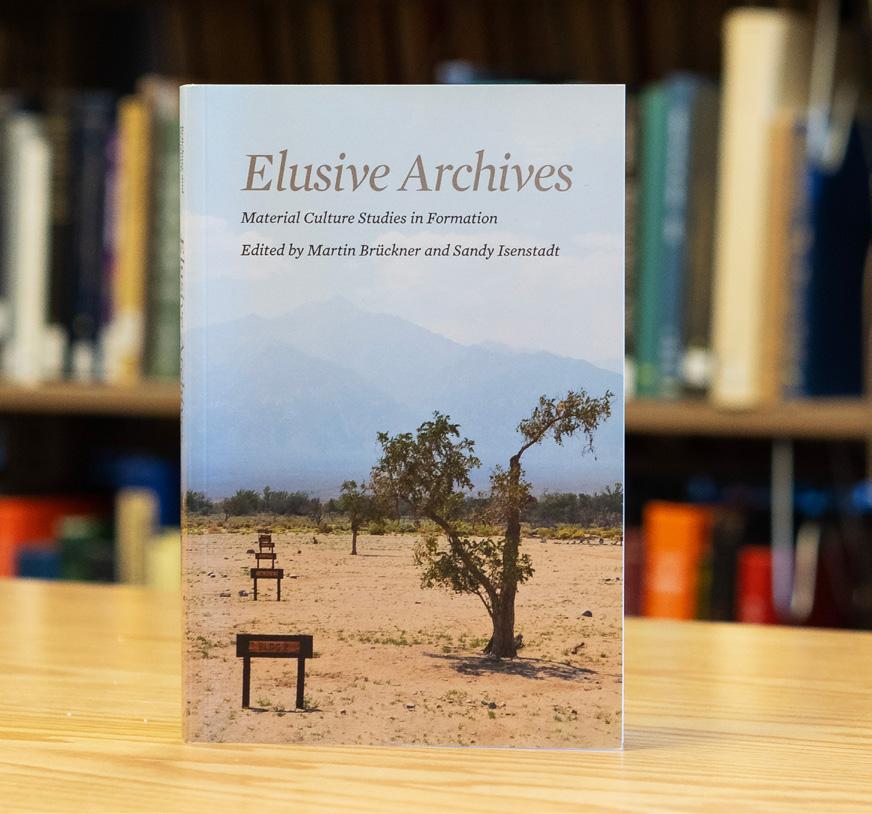
Productive study spaces differ from person to person. From brightly lit group study rooms to private nooks in quiet corners, there are a variety of options in Morris Library depending on an individual’s needs and preferences.
Students with disabilities or those who are neurodivergent – individuals with autism, ADHD or dyslexia, for instance, whose brains learn and process information differently from those considered neurotypical –have another option in the Assistive Technology Center (ATC).
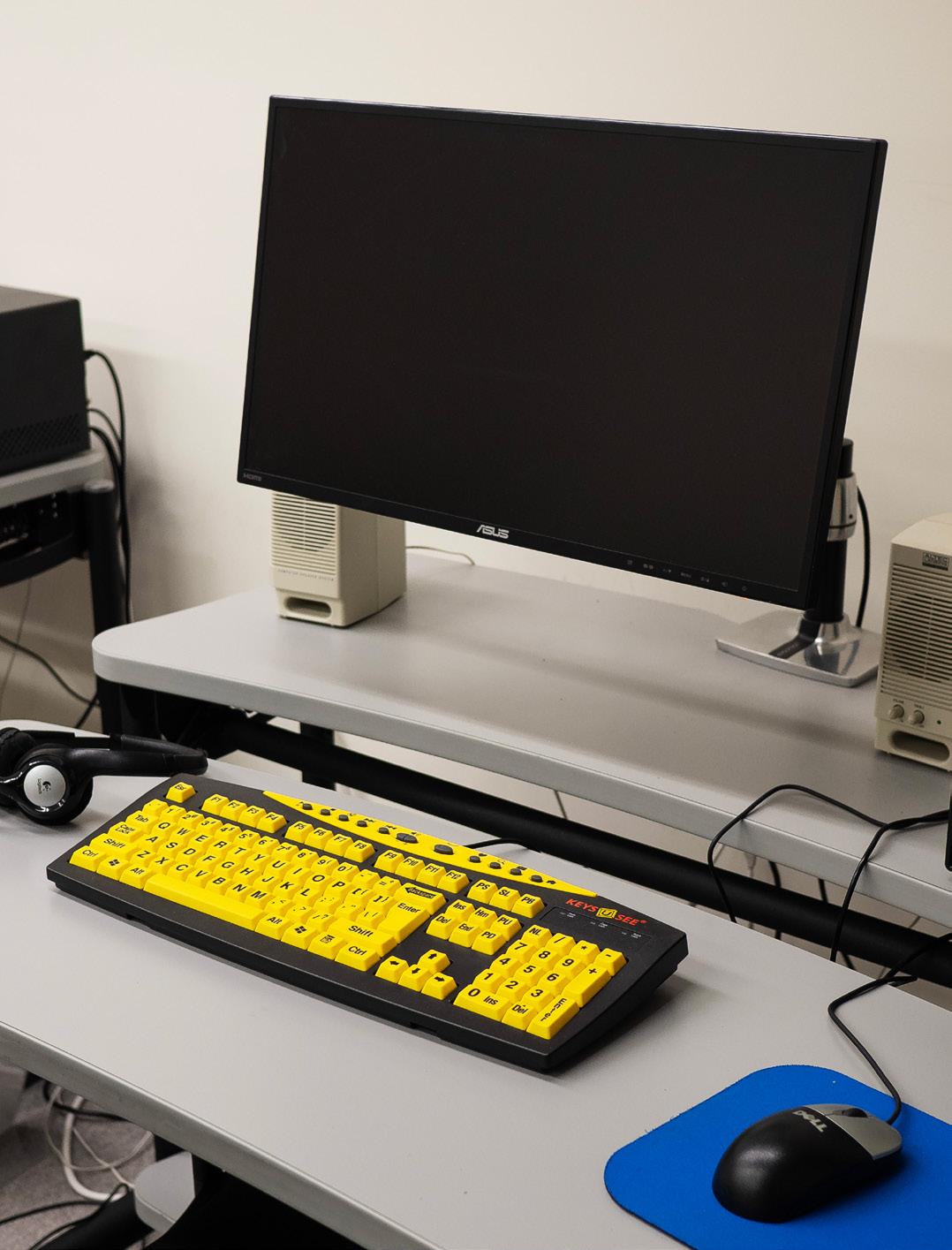
In this space, students and community members have access to specialized hardware, software and equipment designed to support their learning, independence and wellbeing.
Here, individuals with visual impairments can access screen-reading and magnification software that enables them to engage with materials they would otherwise have difficulty processing. Students with dyslexia can use speech-to-text software that allows them to more easily write essays and emails. Those experiencing sensory overload can control the brightness of the room with separate ceiling lights that can be dimmed.
TO URTHE A CT
Throughout the year, librarians offer ATC orientations to students and student groups to ensure those who may benefit from using assistive technology know it is available to them. Spectrum Scholars, a college-to-career program that provides a comprehensive support system for students with autism, also hosts twice-a-week study sessions in the space.
Blue Hens who are registered with the Office of Disability Support Services as having a disability that prevents them from reading print books now have enhanced access to print materials, too.
Through the HathiTrust Accessible Text Request Service at the Library, Museums and Press, students can now request PDF versions of copyrighted books from HathiTrust Digital Library, a platform that offers millions of titles that have been digitized from libraries around the world.
“The Library, Museums and Press was one of Spectrum Scholars’ first campus partners, and we wanted to do all we could to make the library a welcoming place for the program’s students,” librarian William Simpson explained. “Keeping in mind the specific needs of autistic students, we saw that the Library’s Assistive Technology Center might serve as a safe, accessible social space, thus encouraging more of our autistic students to start using the library.”
The Library, Museums and Press aims to foster safe, welcoming and comfortable environments for all Blue Hens, complete with the equipment, services and support necessary for their success.
The Assistive Technology Center in Morris Library is one of two on the Newark campus. The other center is located in Alison Hall within the Office of Disability Support Services.
To ensure first-year students feel welcomed and comfortable using the collections and services of the Library, Museums and Press, the Library designs self-guided tours around the annual Common Reader, including 2021’s selection, Under a White Sky: The Nature of the Future by Elizabeth Kolbert. In fall 2021, both virtual and in-person tracks were available for the first time, which resulted in a 10% increase in participation from the previous year.
To make it faster and easier to borrow books, contactless self-checkout options are now available in Morris Library, the Physics Library in Sharp Lab and the Chemistry Library in Brown Lab via a kiosk or the UD Library Self-Checkout mobile app. The speed of the checkout process in the Education Resource Center was also enhanced due to a project that brought the book barcodes in line with the rest of the organization.
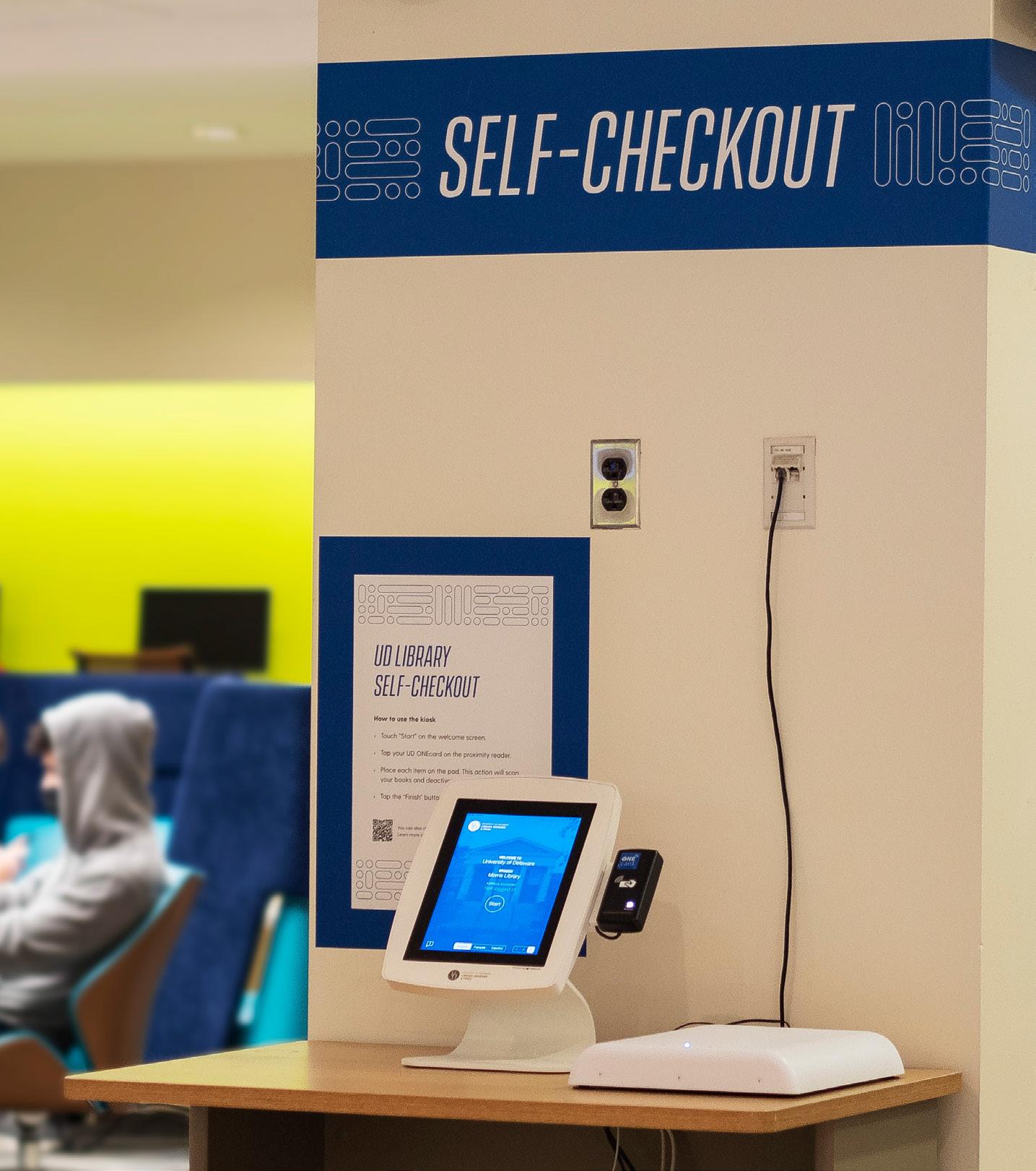
The Library, Museums and Press has updated or added approximately 10,000 digital object records and images from the Museums Collections to the Artstor database. This significant addition enables members of the UD community to immediately access and easily discover materials from these collections whenever they need them.
With new digitized mapping functionality built into the Library’s online catalog, the UD community can see exactly which floor and row to go to in Morris Library to find the book they are searching for. Launched in summer 2021, the digital mapping tool helps students feel more confident and comfortable using the library spaces.
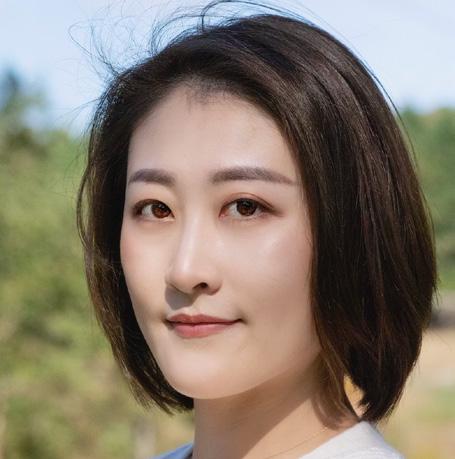
Designed as a three-year appointment, the Pauline A. Young Residency Program accelerates professional growth and career advancement for early career librarians from traditionally underrepresented groups.
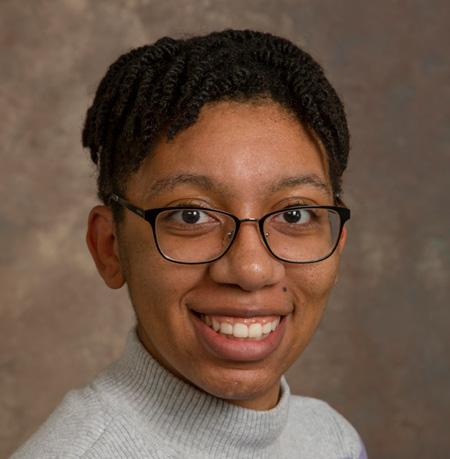
Resident Shelby Daniels-Young has been instrumental in introducing first-year students to the materials and services available through Special Collections. Along with her work to curate exhibitions and to arrange and describe archival collections, Daniels-Young has been a key player in improving descriptive practices to make them more respectful of the histories represented.
Resident Yuqiao “Brigitte” Cao is leading a project to better understand how comfortable UD faculty are when teaching and designing assignments meant to help students create and interpret visual materials. With the survey results, Cao is learning how the Library, Museums and Press can strengthen its support of faculty through its resources, services and training opportunities.
In June 2022, the Library, Museums and Press lost longtime friend and employee Angelica Lord. Throughout her 30 years with the organization, Angelica made an incalculable impact with her work around access services as well as acquisitions and donated materials. Her effervescence, generosity and sense of humor will be forever remembered.
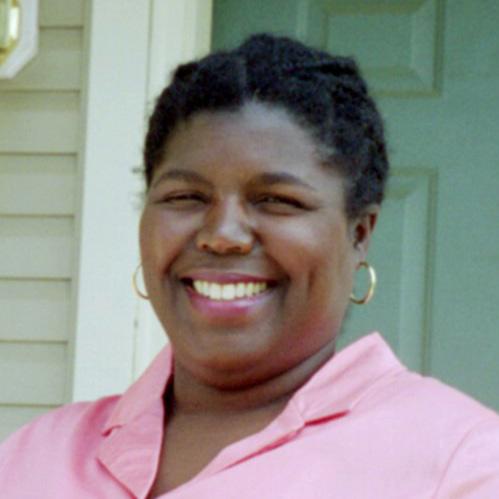
The Library, Museums and Press is passionate about creating environments where all feel welcome and accepted. Through programming and professional development opportunities led by members of the IDEAS (Inclusion, Diversity, Equity, Anti-racism, Accessibility and Social Justice) Committee, staff are empowered to learn, live and share those core values.
In addition to sessions on the visibility of Black collections, social justice efforts in human resources, and the use of land acknowledgments, the IDEAS Committee held several events during the 2021-2022 academic year that allowed staff to come together to process incidents of racism and violence both locally and nationwide.
Daniel Peart, data services librarian, October 1, 2021.
Yalonda J.D. Green, literature and Africana studies librarian, December 1, 2021.
Sebastian Derry, head of the Multimedia and Access Services Department, January 3, 2022.
Petra Clark, library assistant III, February 1, 2022.
Kyle Kreiger, technology support specialist I, February 16, 2022.
Katelyn Leonardi, library assistant II, February 16, 2022.
Annie Johnson, associate university librarian for publishing, preservation, research and digital access, April 4, 2022.
Jennifer Wilson, library assistant III, April 18, 2022.
Kayla Abner was promoted to the rank of senior assistant librarian, July 1, 2021.
Maisha Carey was promoted to the rank of associate librarian and appointed deputy university librarian and director of organizational learning, July 1, 2021.
Tywanda Cuffy was appointed director of external relations, communications and development initiatives, July 1, 2021.
Erin Daix was appointed associate university librarian for acquisitions and collections services and UDLib/SEARCH program director, July 1, 2021.
Colleen Estes was promoted to systems programmer III, July 1, 2021.
Meg Grotti was appointed associate university librarian for learning, engagement and curriculum support, July 1, 2021.
Shelly McCoy was appointed associate university librarian for public services and space planning, July 1, 2021.
Julie McGee was appointed interim director of Special Collections and Museums, July 1, 2021.
University of Delaware Library, Museums and Press
Paige Morgan was appointed head of the Digital Collections and Preservation Department, July 1, 2021.
Molly Olney-Zide was appointed instruction and outreach librarian and UDLib/SEARCH training coordinator, July 1, 2021.
Kristopher Raser was appointed multimedia project manager, July 1, 2021.
Kaitlyn Tanis was promoted to the rank of senior assistant librarian, July 1, 2021.
Kathy Cephas accepted a new position as technology support specialist I, January 1, 2022.
Derek Dolby was appointed the coordinator of user access and support, January 1, 2022.
Megan Gaffney was appointed head of the Collections and Resource Sharing Department, February 1, 2022.
Antoinette Yost was promoted to coordinator of the Collections Sharing and Delivery unit, April 1, 2022.
Renee Pauls accepted a new position as library assistant III, April 16, 2022.
Erik Berthoud was promoted to library assistant III, May 1, 2022.
Nicholas Moye was promoted to library assistant III, May 1, 2022.
Jessica Deshaies accepted a new position as digital publishing specialist, May 2, 2022.
Jeffrey Boys, library assistant III, July 1, 2021.
Linda Garber, administrative assistant IV, July 1, 2021.
David Lytle, library assistant III, February 1, 2022.
Carol Rudisell, librarian and head of the Reference and Instructional Services Department, February 1, 2022.
Susan Davi, librarian and head of the Collections and Electronic Resources Management unit, April 1, 2022.
Thanks to our generous supporters, the Library, Museums and Press is able to continue the work of preserving distinct and diverse collections and making resources available for scholars worldwide to research, explore and examine.
Together, we foster opportunities for future generations to become well-rounded and highly informed global citizens. Below are just a few of the ways you have made that possible this year. Thank you!
from
The Friends group’s yearly gift supports Special Collections in acquiring rare and unique materials that enhance scholarly research. The group also encourages learning opportunities with an annual lecture, annual dinner and the Seth Trotter Book Collecting Contest.
A record number of donors raised more than $10,700 in support of this program, ensuring that future generations of early career librarians from underrepresented groups will continue to have opportunities for meaningful and accelerated professional growth.
Funding to Publish Catalog on Korshak Collection of Fantasy Art Stephen and Alma Korshak provided funding that will enable the University of Delaware Press to publish a groundbreaking catalog on one of the largest collections of fantasy art in the world, creating a valuable resource for scholars interested in the works and themes of the collection.
A special thank you to alumnus Theodore F. Killheffer Jr. and Anette Bogstad, longtime donors to the Library, Museums and Press. This year, Killheffer reached the 20-year milestone as a University of Delaware Diamonds Society donor.
Library Student Assistant Scholarship
Funded by Library, Museums and Press staff, this year’s $1,000 scholarship was awarded to UD alumna Alyssa DePaolis as she pursues a graduate education in librarianship.
On Giving Tuesday and I Heart UD
Giving Day, 145 donors raised more than $9,700 to grow the University’s collection of artwork by African American women, ensuring researchers can learn from these important perspectives.
IMPACT REPORT 2021-2022
Artwork acquired with funds raised to diversify our art collections: Delita Martin, Delita, 2021. From the Keepsake series. Lithograph with collagraph and hand-stitching on paper. Museums Collections, Purchase.
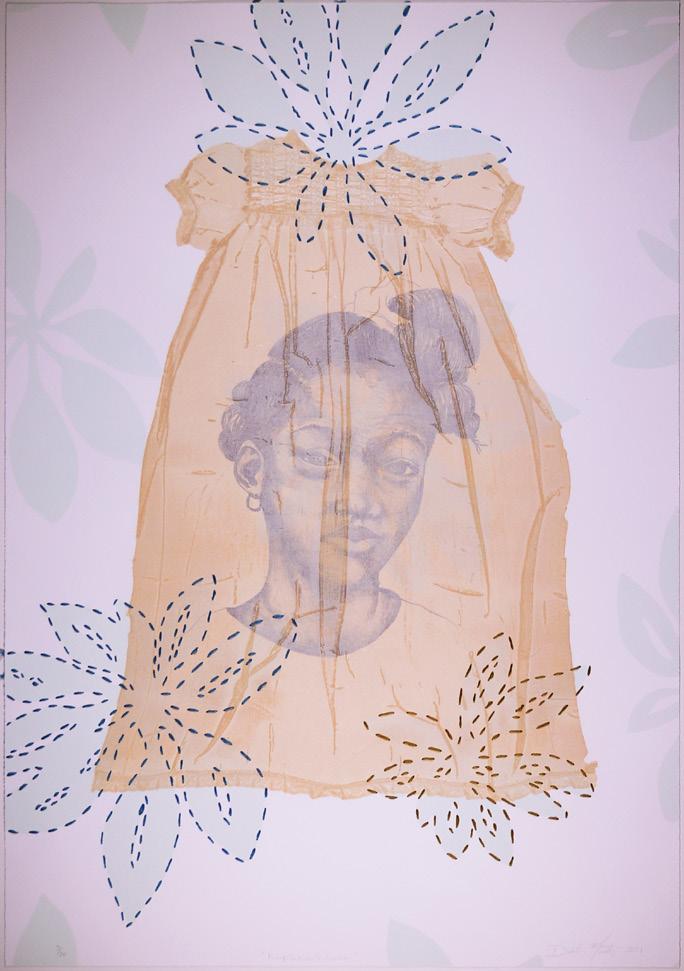
Support our students, collections and programs: library.udel.edu/giving
Questions or comments?
Office of the Vice Provost UD Library, Museums and Press Newark, DE 19717-5267 302-831-2231
For more information about the University of Delaware Library, Museums and Press, visit: library.udel.edu
Allison Ebner Writer Jaynell Keely Designer Kris Raser Project Manager Tywanda L. Cuffy Director of External Relations, Communications, and Development Initiatives Photographs by the Library, Museums and Press unless otherwise notedLibrary, Museums and Press 181 South College Avenue Newark, DE 19717-5267
library.udel.edu | 302-831-2965
The University of Delaware does not discriminate on the basis of race, color, national origin, sex, disability, religion, age, veteran status, gender identity or expression, or sexual orientation, or any other characteristic protected by applicable law in its employment, educational programs and activities, admissions policies, and scholarship and loan programs as required by Title IX of the Educational Amendments of 1972, the Americans with Disabilities Act of 1990, Section 504 of the Rehabilitation Act of 1973, Title VII of the Civil Rights Act of 1964, and other applicable statutes and University policies. The University of Delaware also prohibits unlawful harassment including sexual harassment and sexual violence. For inquiries or complaints related to Title IX, Section 504 of the Rehabilitation Act of 1973 and/or the Americans with Disabilities Act, and Title VII and age discrimination please contact: Danica Myers, Director, Institutional Equity & Title IX Coordinator, 305 Hullihen Hall, Newark, DE 19716, (302) 831-8063, titleixcoordinator@udel.edu OR contact the U.S. Department of Education – Office for Civil Rights (https://wdcrobcolp01.ed.gov/CFAPPS/OCR/contactus.cfm).